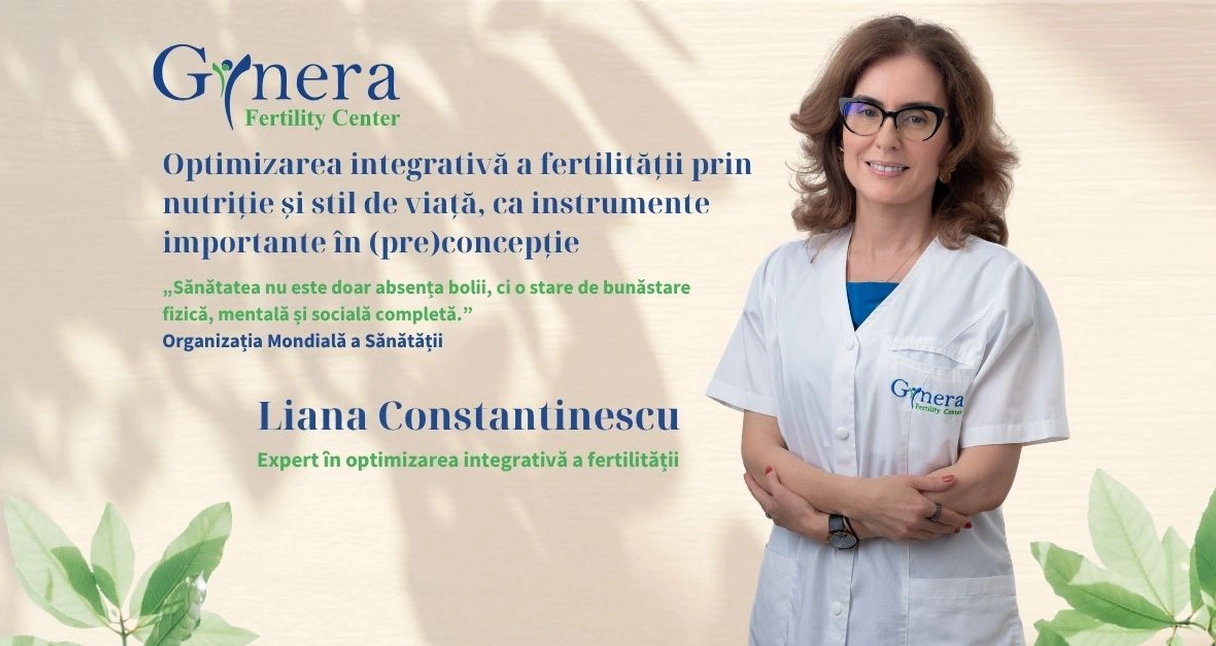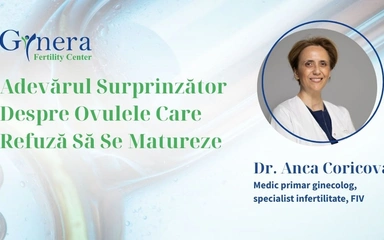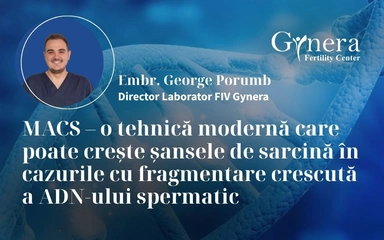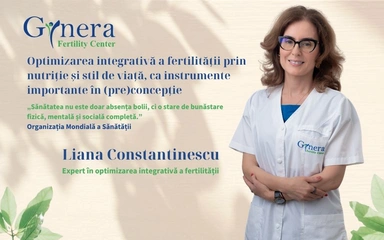Integrative Fertility Optimization Through Nutrition and Lifestyle:
A Powerful Tool for Preconception

“Health is not merely the absence of disease, but a state of complete physical, mental and social well-being.” — World Health Organization
1. Why is Fertility a Global Challenge?
Infertility affects 15–25% of couples in Western countries and represents a significant challenge for modern reproductive health. Factors include delayed conception, metabolic disorders like obesity and insulin resistance, environmental toxins, poor diet, sedentary lifestyle, chronic stress, insufficient sleep, and unhealthy habits (smoking, alcohol use, etc.).
To address these challenges, fertility requires a multidisciplinary approach that combines medical interventions (IVF, hormone therapy, artificial insemination) with integrative care—circadian rhythm regulation, body composition optimization, nutrition, sleep architecture, toxin avoidance, hormonal disruptor exposure, and more. A growing body of evidence confirms the influence of internal environments—nutritional, metabolic, hormonal—on conception success.
2. What Is Integrative Medicine and How Does It Support Fertility?
Integrative medicine treats the whole person—physically, emotionally, spiritually. In fertility care, it merges conventional medicine with evidence-based complementary therapies to support reproductive health.
A 2023 study (Sehgal et al.) of 1,460 infertility patients found:
- 80.4% used at least one integrative approach.
- 74% modified their diet; others used supplements, acupuncture, yoga, or meditation.
- These practices were more common among patients over 35, with higher incomes and better access to care.
3. What the Science Says: Usage of Integrative Approaches in Fertility
- 74% used nutritional therapy
- Vitamin D: 43.2%
- Other vitamins: 44.7%
- CoQ10: 35.4%
- 45.2% used physical therapies:
- Acupuncture: 38.5%
- Yoga: 27.6%
- Massage: 25.8%
- 42% used traditional alternative medicine
- 32.1% used cognitive/stress therapies
- 18.5% used herbal supplements
4. The 6 Pillars of Integrative Fertility
4.1. Diet Quality
A study (Karayiannis et al., 2018) showed women following the Mediterranean diet had a 50% clinical pregnancy rate vs. 29% among low-adherence groups.
Recommended foods: fish, leafy greens, berries, olive oil, whole grains, legumes, seeds.
Foods to avoid: trans fats, refined sugars, excess caffeine or alcohol.
4.2. Critical Micronutrients
Folate (>800 µg/day): Reduces anovulatory infertility by 40%
Vitamin D: Enhances implantation; low levels impair fertility
Coenzyme Q10, Zinc, Selenium, Omega-3 fatty acids: Support egg and sperm quality
4.3. Weight & Metabolism
Ideal BMI: 18.5–24.9
Even 5–10% weight loss can restore ovulation in PCOS cases
4.4. Physical Activity
Moderate: 150 mins/week
Overtraining (>5h/week) may impair fertility
4.5. Sleep & Stress
<6h/night reduces ART success by 20%
Stress reduction increases pregnancy rates by 32%
4.6. Toxins & Hormonal Disruptors
Smoking, alcohol, BPA, and phthalates lower reproductive quality
5. When Do Results Appear?
Oogenesis and spermatogenesis take about 90–100 days. Start lifestyle changes at least 3 months before trying to conceive or starting IVF.
6. Conclusion & Recommendations
An integrative fertility plan empowers couples to improve their conception chances naturally and optimize IVF outcomes. Over 80% of infertility patients already choose integrative tools. Benefits include:
- Hormonal balance
- Healthy ovulation
- Lower stress and inflammation
- Better reproductive performance
Success requires consistency, personalization, and expert guidance—not perfection.
Bibliography
- World Health Organization. Infertility. Fact sheet, 2023.
- Sehgal A, et al. Integrative medicine use among infertility patients: a cross-sectional study. Reprod Biol Endocrinol. 2023;21(1):78.
- Gaskins AJ, Chavarro JE. Diet and fertility: a review. Am J Obstet Gynecol. 2018;218(4):379-389.
- Karayiannis D, et al. adherence to the Mediterranean diet and IVF outcomes. Hum Reprod. 2018;33(3):494–502.
- Chavarro JE, et al. Body mass index and infertility: epidemiology and evidence. Hum Reprod Update. 2010;16(6):665–681.
- Anderson K, et al. Impact of lifestyle factors on reproductive performance in the general population and those undergoing infertility treatment. Fertil Steril. 2010;94(6):1980–1986.
- Ricci E, et al. Physical activity and fertility: a systematic review. Hum Reprod Update. 2016;22(2):213–227.
- Thoma ME, et al. Environmental exposures and reproductive health: a review. Curr Epidemiol Rep. 2018;5:1–10.
- Mongkolchart S, et al. The effects of sleep duration on IVF outcomes. Sleep Med. 2021;84:61–67.
- Rooney KL, Domar AD. The relationship between stress and infertility. Dialogues Clin Neurosci. 2018;20(1):41–47



